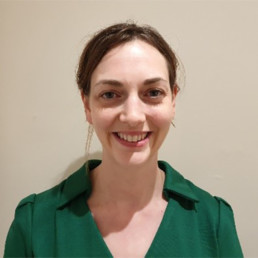
Written by Liz Boyer
Liz Boyer has dedicated 21 years to education, she specialises in EYFS and KS1. Liz has taught across phases in both the Independent and State sectors, most recently in inner-city schools that are wonderfully diverse in nature. Liz has held various school leadership roles and has devotedly mentored ITT/E students for 15 years. In 2021, she became a SCITT Tutor, and currently serves as Primary Lead for Bluecoat SCITT Alliance BSA. Starting in September 2024, Liz will begin her role as a Senior Lecturer at the University of Derby UoD, continuing her commitment to fostering excellence in education and developing the next generation of teachers. Liz is also dyslexic but doesn’t wish that to define her.
In 2021, I wrote a diary during a 10-day COVID isolation. Fast forward to today I am a Primary SCITT Lead at Bluecoat SCITT Alliance BSA within the Archway Learning Trust ALT. Here, I have the honour of collaborating with an array of exceptional trainee teachers, each with their own unique experiences. Some of these trainees have encountered the challenges associated with neurodiversity, and it is a privilege to support them as we navigate the dynamic landscape of teaching together. I firmly believe that every individual has valuable contributions to make, and I am committed to working with both trainees and educational institutions to ensure that everyone’s strengths are recognised and celebrated. Some schools actively champion colleagues of all backgrounds, while others are striving to achieve this inclusive environment. My primary support in this endeavour is Diverse Educators DE, an organisation that not only shapes policy but also guides schools as we navigate the era of inclusivity.
2021 Highlights
Day 1: Introduction
I am Liz Boyer, an educator with 18 years’ experience, whilst I have had many senior school roles I identify first and foremost as a teacher. What sets me apart from some others (although 20% of the population are with me) is my dyslexia, a facet of my professional life I typically do not emphasise however, I am not saying it should be hidden. Today, I aim to share insights, coping strategies, and reassurance for teachers—whether dyslexic or not—drawing from my own journey.
Day 2: Lists
Make a plan with tiny steps to kick start tasks, applicable beyond teaching. For instance, when tackling a long-term plan, start by just gathering necessary materials. Set a specific day and time for each step, adhering to it diligently. Embrace list-making to maintain momentum—I find ticking tasks off deeply rewarding.
- Write day 2 diary entry for blog.
Day 3: Mathematics
Reflecting on my own education in maths, I faced significant anxiety around numbers, which mastery, a concept absent in my schooling, would have alleviated. My breakthrough came shortly before my PGCE during a refresher course, highlighting missed fundamental concepts. Witnessing mastery in Early Years, I see its power in building confidence and comprehension, ensuring all students succeed.
Day 4: Level 7
For reluctant readers and writers aiming for academic credibility at Level 7, the demands on trainees, ECTs, and their mentors are undeniably higher than before. While high expectations for teachers are justified, they should come with increased trust and respect for the sector. Amidst such pressure, retaining and nurturing good teachers becomes crucial. Here are practical pointers for those feeling overwhelmed:
- Start with subjects that genuinely interest you, for me EYFS or ITT/E.
- Cultivate a network of trusted friends and colleagues who can help read and rephrase materials.
- Utilise social media groups for resources and support.
- Incorporate audiobooks or podcasts into your routine for multitasking.
- Engage in webinars or teaching hubs for ongoing, affordable support.
Day 5: Phonics
Balancing play, phonics, and literacy is challenging but crucial. Reflecting on my education and my son’s journey, I recognise the importance of time in learning to read and write. While the new EYFS framework is positive, there is still a lack of trust in children’s need for exploration and play. More emphasis on Phase 1 and language development in Reception is essential.
Day 6: Asking for Help
Accepting support is vital, even though I found it challenging in the past. My mum checked my work as a teenager, and although I found it embarrassing then, I now appreciate support from her or other trusted checkers.
Day 7: Making Mistakes
Mistakes are part of learning, but professionalism demands accuracy in communication. You also need to set a good example to children and I think that written and spoken English needs to be correct. Daily practice and support are essential for improvement, use flashcards and revision techniques just as you would with children. Senior Leaders need to play to people’s strengths and celebrate the creativity, ability to communicate and energy to name a few positive attributes that often come from pupils and teachers with dyslexia.
Day 8: Health and Resilience
Resilience is vital for teachers. Learning from setbacks and taking care of mental and physical health are crucial. After setbacks like nerves in interviews, it is important to learn and grow.
Day 9: Supply Teaching
Supply teaching offers valuable learning opportunities and keeps educators sharp. It allows observation of various school cultures and improves subject knowledge through diverse experiences.
Day 10: Conclusion
I hope you have found my experiences useful and that I have emphasised that having dyslexia or other learning needs need not be a barrier to teaching. Full blog available on request.

